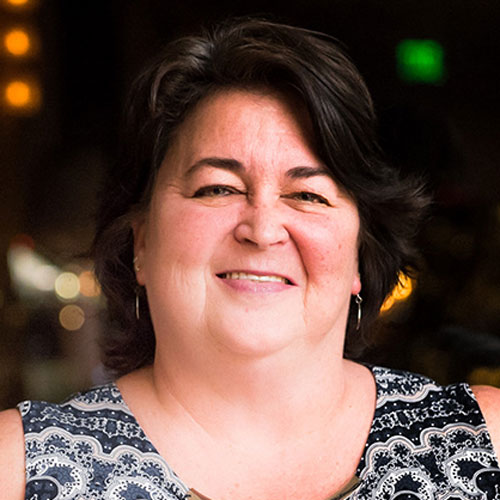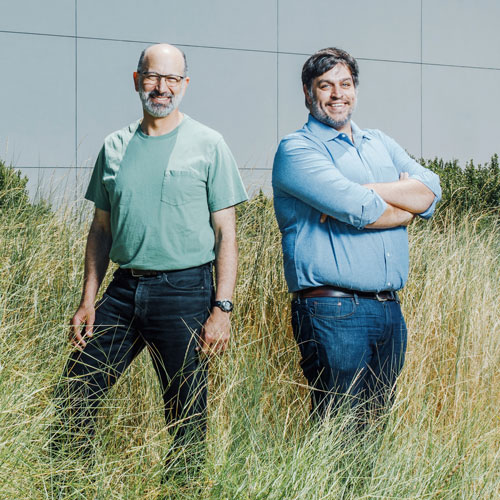Choice Hotels is known for being one of the largest hotel companies in the world, currently boasting nearly 6,500 properties spread across more than 40 countries and territories. Yet despite its already immense scale, the company continues to expand by adding about 700 new franchisees to its roster annually. David Pepper, chief development officer for the company, gets the credit for much of that recent growth.
He joined Choice Hotels in 2002 as vice president of franchise sales and development before transitioning into the role of senior vice president of global franchise development in 2009. During that time, franchise sales rose to record levels, more than doubling in Pepper’s first three years in the position. He attributes much of his initial success to implementing “really strong brand strategies.” But, he also admits there’s something equally important at play: a positive and rewarding culture.
“If people don’t enjoy their work, then they’re not going to be good at their jobs,” Pepper explains. “You will see it and, more importantly, so will your customers.” This emphasis on enjoying one’s work is part of his broader business philosophy that he sums up succinctly with a favored motto: “Culture can eat strategy for lunch.”
Pepper’s ideal company culture also entails creating a supportive environment that encourages associates at every level to innovate and build ethical, long-lasting relationships with their customers. “With our portfolio of brands, our team is able to offer the right product for any market,” Pepper says about his approach to recruiting new franchisees. “These brands offer a great value proposition that includes ongoing tools and resources to enhance franchisees’ profitability. With this offering, our team can confidently make a sale.”
One tool that’s currently strengthening Choice Hotels’ relationship with its customers is SmartRates, which analyzes market conditions and sets room rates for 90 percent of the company’s domestic franchises. Along with Choice Privileges, a members rewards program, SmartRates helped Choice Hotels increase its revenue per available room (RevPAR) by 3.9 percent in 2016, or 0.7 percent more than the national average. This all adds up to enhanced profits for franchisees as well as shareholders.
“If people don’t enjoy their work, then they’re not going to be good at their jobs. You will see it and, more importantly, so will your customers.”
This same economic symbiosis plays a key role in another one of Pepper’s ongoing projects: the transformation of the Comfort brand. As part of an ongoing strategy to reimagine the brand, nearly 600 hotels were removed from the chain, and franchisees were encouraged to replace those properties with modern prototypes.
“We wanted to make sure Comfort Inn and Suites was fresh and consistent for our owners and consumers,” Pepper explains.
What excites Pepper about this project is that Choice Hotels is investing its own money into the modernization efforts rather than placing the entire onus of remodeling and rebuilding on franchisees. “I’ve never been a part of a company where we actually went out and gave
$40 million—invested $40 million—into our owners to help them renovate their hotels so that their properties could perform better,” Pepper says. He adds that the company viewed the investment as a “long-term, profitable proposition” for everyone involved.
The earnings statement for Choice Hotels the last quarter of 2016 suggests that this tactic is paying off. Not only are guest-satisfaction scores for the chain at an all-time high, but Comfort also signed 120 new franchise agreements last year. Roughly two-thirds of those contracts are for new construction, allowing for greater brand consistency. New construction also helps the company make inroads into new markets, which is an integral aspect of its overall development strategy and one that Pepper is leading the charge on.
In addition, Choice is investing $475 million into the launch and expansion of the Cambria Hotel brand, an upscale brand designed for the modern traveler. Its hotels are located in large urban markets, where the demand for rooms far outweighs availability. The brand recently opened properties in Los Angeles, Dallas, and Chicago, where it converted an office building attached to the historic Oriental Theatre. At press time, a total of 31 Cambria hotels had opened around the country, and 10 more were scheduled to do so in 2017.
Pepper considers Choice Hotels’ foray into the upscale market a “terrific return on investment,” noting that Cambria’s strategic placement in high-demand markets helps drive up average daily rates and attract new guests. Choice Hotels’ internal research supports his assertion. In 2016, the Cambria brand’s RevPAR clocked in at more than $100, and guest feedback gave the brand a satisfaction rating of nine out of 10.
If there’s one through line that connects all of Pepper’s current projects, including his work with Comfort and Cambria, it’s the idea that increasing profitability for franchisees—and treating them fairly—is paramount. “If we have happy, consistent owners who are performing, then we succeed,” he says. “It’s a win-win for both the owners and Choice shareholders.”
This all ties back to a strong company culture. When employees are empowered to succeed, they’re more likely to be happy, loyal, and innovative. Pepper witnessed this firsthand at a recent convention, which was attended by about 6,000 of Choice Hotels’ franchisees.
“A lot of people were coming up to me and saying, ‘You know, I really feel like I’m part of a family here at Choice, and I really feel like you care about me,’” Pepper recalls. Comments such as this, when considered in tandem with Choice Hotels’ recent growth, are a ringing endorsement of the fun, supportive culture that Pepper has worked tirelessly to build over the years.


